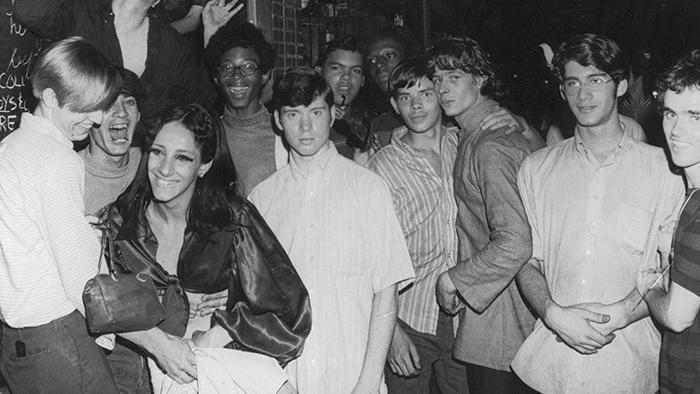What the Stonewall Riots Mean 50 Years Later
By David Mixner
LOS ANGELES (Variety.com) – For one to fully understand the impact of the Stonewall riots, it is important to comprehend the darkness that LGBTQ Americans faced every day of their lives in the years leading up to . Allow me to take you back to the 1950s and ’60s, when I was coming of age as a closeted gay man.
In 1950, being gay was still classified by the medical community as a certified mental illness. In fact, the solution being practiced to cure citizens was to forcibly (with parents’ approval) commit them to mental institutions and to perform lobotomies on them. One institution became known as the “homosexual Dachau” because in one year, in just this one institution, close to 4,000 lobotomies were performed, and the doctor leading the charge became known as “Dr. Icepick.” Over a decade, tens of thousands of your LGBTQ neighbors were made into vegetables, never to fulfill their promise.
I remember a young man named Freddy Davis who at age 16 was arrested in a local park. His name, age and address were printed in the paper. He committed suicide. Around the kitchen table that night, after the news had spread around to the local farmers, my dad pronounced that Freddy’s family was better off with him dead given the shame he had brought to it.
Trust me: I got the message.
In those years, thousands upon thousands of LGBTQ Americans lost their jobs and their families, and had their kids taken away from them, and many committed suicide. I lived in constant fear of being discovered, having a lobotomy and never being able to work. Many of those who committed suicide didn’t even have a funeral because their families wouldn’t claim their bodies and religious institutions wouldn’t allow them to be buried in their facilities. They were buried in pauper cemeteries, and we will never know their names.
Then came Stonewall.
For years police had been raiding LGBTQ bars and parties and doing massive roundups. It was a way of life, and on June 28, 1969, that changed forever at the Stonewall Inn in New York City. Earlier in the week, gay icon Judy Garland had died, and thousands of gays lined up to pay their last respects. On June 28, the police made their usual raid on Stonewall, but the drag queens and other customers were livid that they would do it the week Judy died. They started resisting arrest, and the police started pushing and beating patrons.
The incident poured into the streets, and for three nights thousands of LGBTQ New Yorkers fought back in the Village, rioting and protesting the years of harassment and imprisonment. That moment became the most important and historic night in LGBTQ history and gave birth to the gay liberation movement.
The Stonewall riots were a clarion call to LGBTQ citizens around the world to fight for our freedom. We didn’t have to live that way any longer, and like many oppressed groups before us we could take control of our lives. We weren’t mentally ill; we didn’t have to be ashamed, and there was light at the end of the proverbial tunnel.
While the rebellion reached into the hearts and minds of millions, it didn’t lead to an overnight sense of security and freedom. There were many events that enforced in each of us how far we had to go to achieve liberation. One of the most shocking was the mass murder of 32 LGBTQ people in New Orleans in 1973 in an arson fire at a bar. The police made it a “cold case” in just two months, and no arrests were made. No church in the city except one African American church would allow us to have a memorial service in its facilities. No elected official even issued a press release either expressing sympathy or condemning the killing. The families of four of the victims refused to claim the bodies, and they were buried in the pauper cemetery. The press had a field day making fun of all the gays burned alive.
We clearly had a long way to go.
Out of Stonewall began a community. I came out in 1976, and I view it as the first day of my life. Thousands were coming out because of that day in June in 1969. Thousands began to battle back and create organizations to fight for our freedom. Even the Democratic Party refused for years to pass a resolution of support or even acknowledge our existence. We were treated as a freak fringe political group and told to compromise or be reasonable. LGBTQ voters would be responsible for candidates losing, and while they had sympathy for us, they still wanted us to stay in the closet.
However, we knew it was not possible for any American to be “partially free” and that freedom was either absolute or not at all.
Out of Stonewall came the story of a brave, noble and courageous community that gave light to the entire nation. Even as our brothers were sick and dying from AIDS, many would protest and get arrested in the last weeks of their life. The story of LGBTQ Americans since that June day is one that should inspire future generations and make all Americans proud that they got to witness such courage.
In my lifetime, I have gone from fearing lobotomies to seeing friends get married, have children, not live in daily fear and have a chance to vote for the first candidate for president, Mayor Pete Buttigieg, who just happens to be gay.
Now that is progress.
David Mixner has been organizing for 60 years in politics and the civil rights and antiwar movements and working to save wildlife in Africa. He has written three best-selling books and has been performing as a storyteller in theaters around the world. He has been an unofficial adviser to six presidents and two prime ministers.

